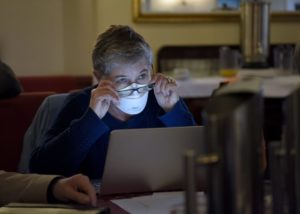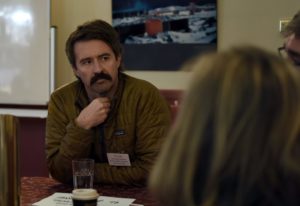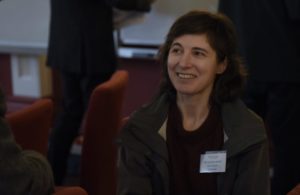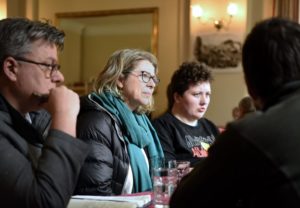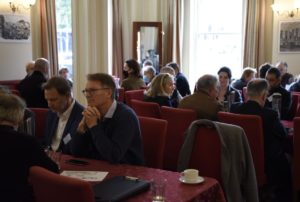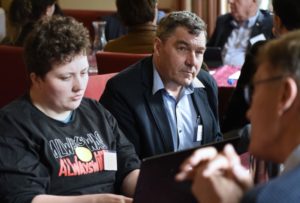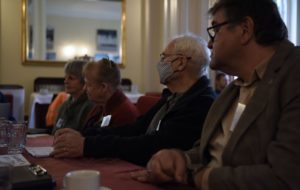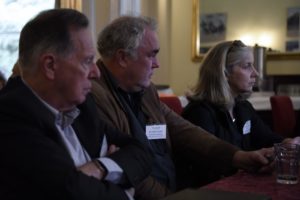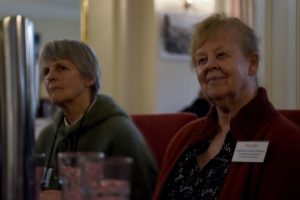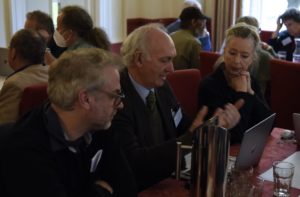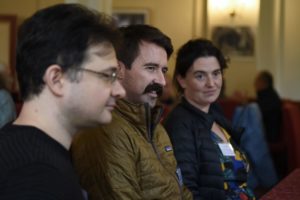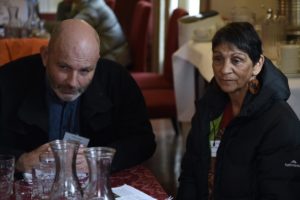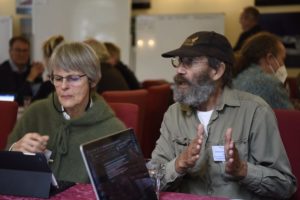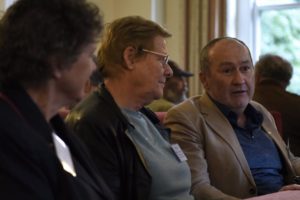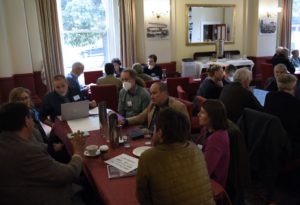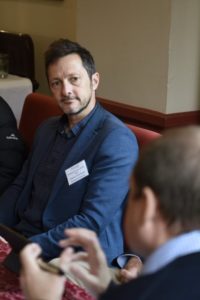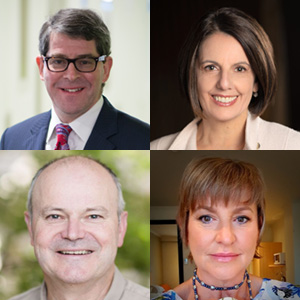Seeking an Independent Taskforce to Address the Biodiversity Crisis
Victoria’s science society is set to establish an independent Cross-Sector Taskforce for Biodiversity Conservation and Recovery that will develop innovative solutions to Victoria’s biodiversity crisis.
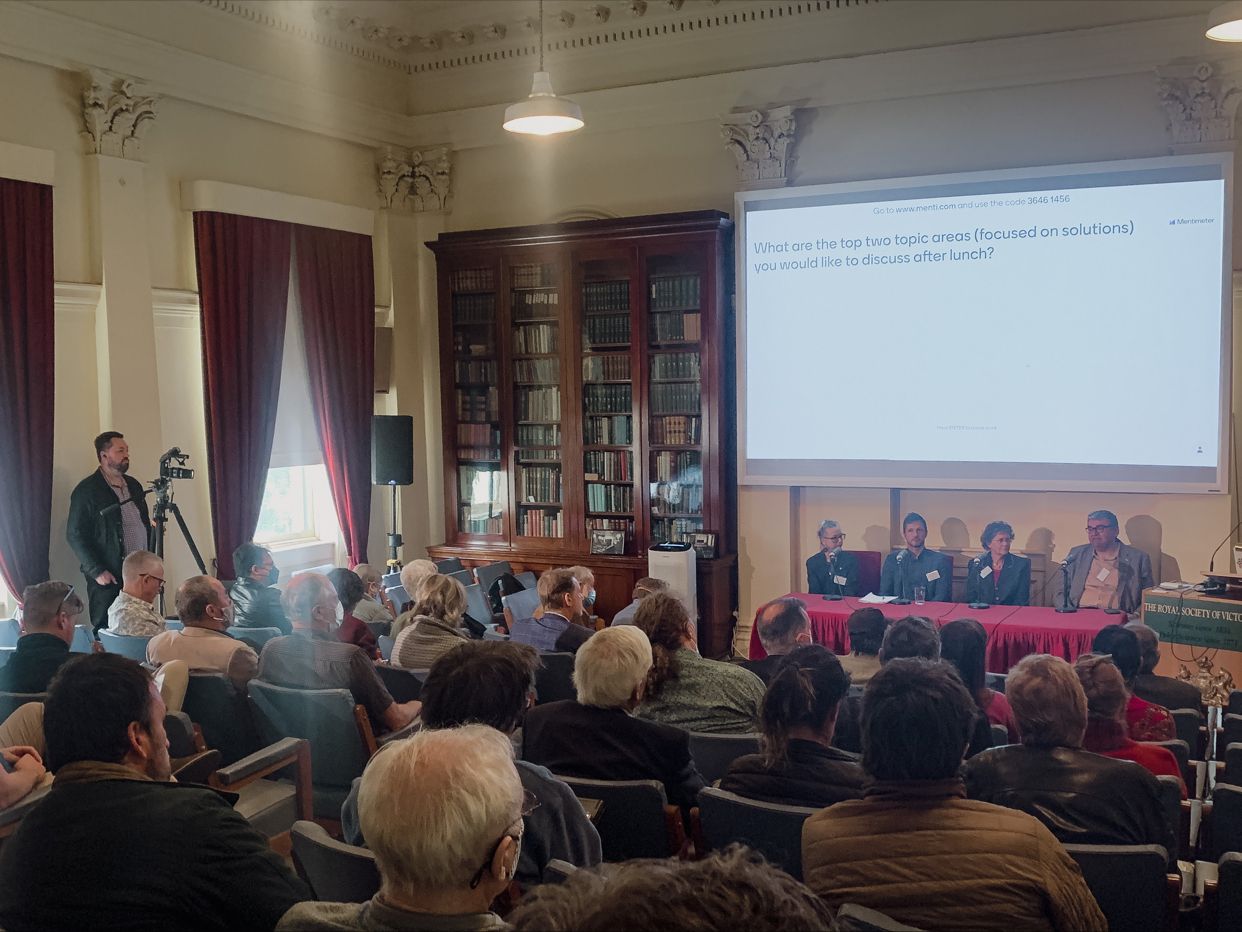
Knowledge holders and leaders from across Victoria, including Traditional Owners, gathered at the Royal Society of Victoria on Saturday 4th June to discuss the challenges and opportunities for Victoria in biodiversity conservation and recovery, considering the urgent need to establish an independent Taskforce.
RSV President Rob Gell framed the discussion on biodiversity as “everyone’s problem.”
“The biodiversity crisis affects all aspects of society and thus requires a whole-of-society response to solve. We are calling on leadership across the four sectors we have identified – government, business, community and research – to come together to establish a collaborative approach and build effective solutions that align with sectoral agendas”.
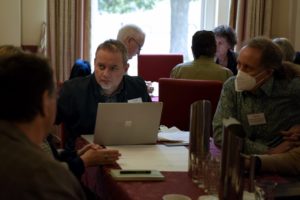
RSV CEO Mike Flattley acknowledges that all sectors of society have been conducting important and productive work; from new impact metrics to ecological system mapping and modelling, through to policymaking, community engagement and social science initiatives to raise awareness and commitment to the natural world across Australia. “The problem is that these various initiatives are not ‘joined up’ across the business, government, academic and community sectors. We seek to accelerate this crucial integration and mainstreaming of honest, positive dialogue about biodiversity, supporting our First Nations colleagues’ efforts in particular.”
The Royal Society of Victoria Cross-Sector Forum on Biodiversity Conservation & Recovery heard:
-
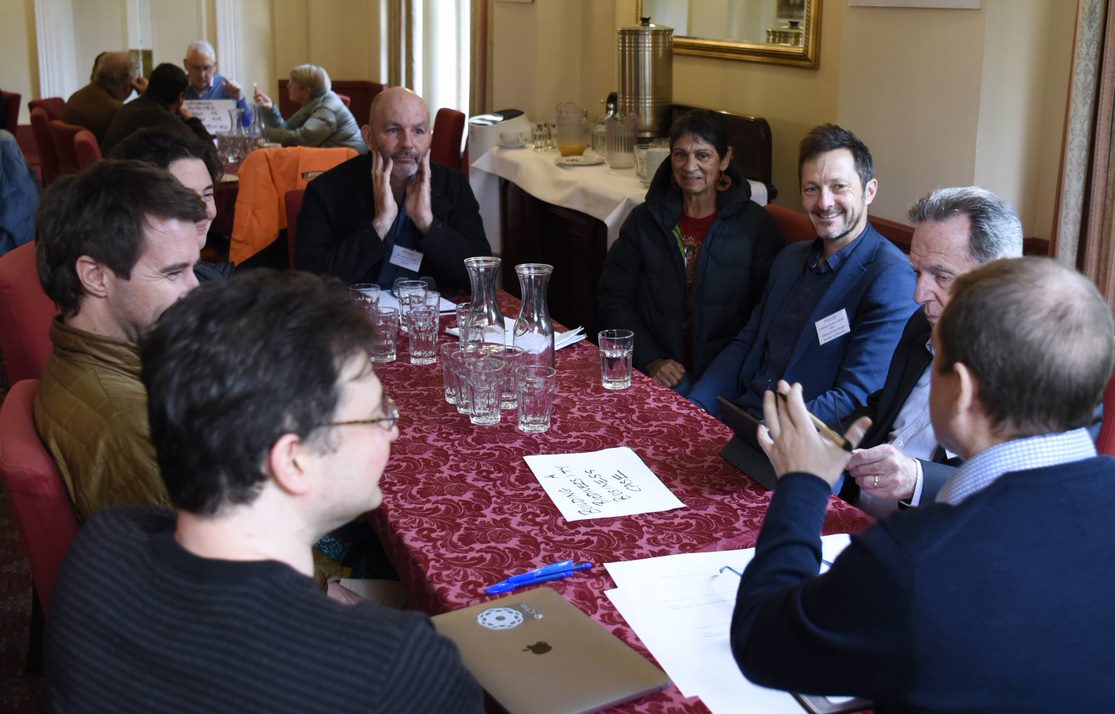
Table discussion by colleagues across business, community, academic and government sectors was a feature of the Forum. There are more than 5,000 plants and 1,200 vertebrate animals native to Victoria. More than a third of these species are classified as rare, threatened or near-threatened. Threats to Victoria’s biodiversity include habitat loss, weeds, pest animals and changed fire and water regimes – all of which are exacerbated by the unfolding effects of climate change.
- Addressing biodiversity loss is affordable. The cost of stopping species loss and recovering nationally listed threatened species is estimated to be about $1.7 billion per year. Each year Australians spend 18 times that amount, about $30.7 billion, just on cats and dogs.
- Traditional Owners, having lived with Country and managed the environment for tens of thousands of years, have a fundamental role to play. There are opportunities to create partnerships between First Peoples, local community groups, primary industries, landowners and others to revive the health of Country, its plants and animals, and its people.
Guiding Principles for the proposed Taskforce developed by the RSV are to:
- Prioritize First Peoples as land and water managers.
- Use science and research to guide actions.
- Include measurable biodiversity conservation or recovery outcomes from actions.
- Work across biologically relevant geographic scales.
- Collaborate with local communities.
- Work across participant scales, from large organisations taking on broad goals to individuals working locally.
- Connect sectors, disciplines, data, expertise, knowledge systems and actions.
- Demonstrate the value of corporate leadership.
- Build the business case value of biodiversity conservation.
- Develop models for private and public investments in biodiversity.
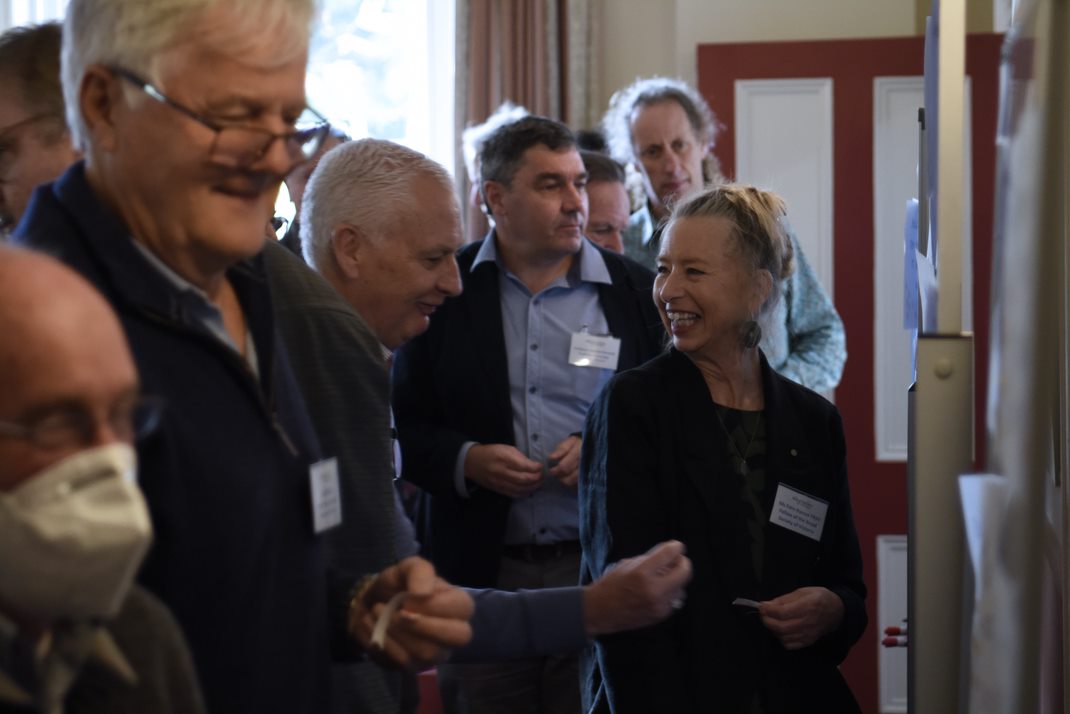
“It is time to move from talk to action,” says Mr Gell. “The Royal Society of Victoria is Victoria’s ‘Switzerland of Science.’ Our independence has been critical in the past, including our advocacy for Victoria’s first national park, Wilson’s Promontory. Addressing Victoria’s biodiversity crisis is not only essential for the future of humanity, through partnerships it can be achieved in a way that is affordable and builds the fabric of our society.”
Professor Graeme Samuel congratulated the Society on the conduct of the Roundtable, which “gathered together an impressive group of environment experts. The organisation of the day and facilitation of the discussion was exemplary.”
“This cannot just be another talkfest,” emphasises Mr Flattley. “We need real impact from real partnerships that deliver on their promises, without the green-washing and offsetting smokescreens that enable further damage to be done to our natural systems and the species they support. Our Taskforce will be looking for joined-up solutions and projects that can help to develop and demonstrate their efficacy.”
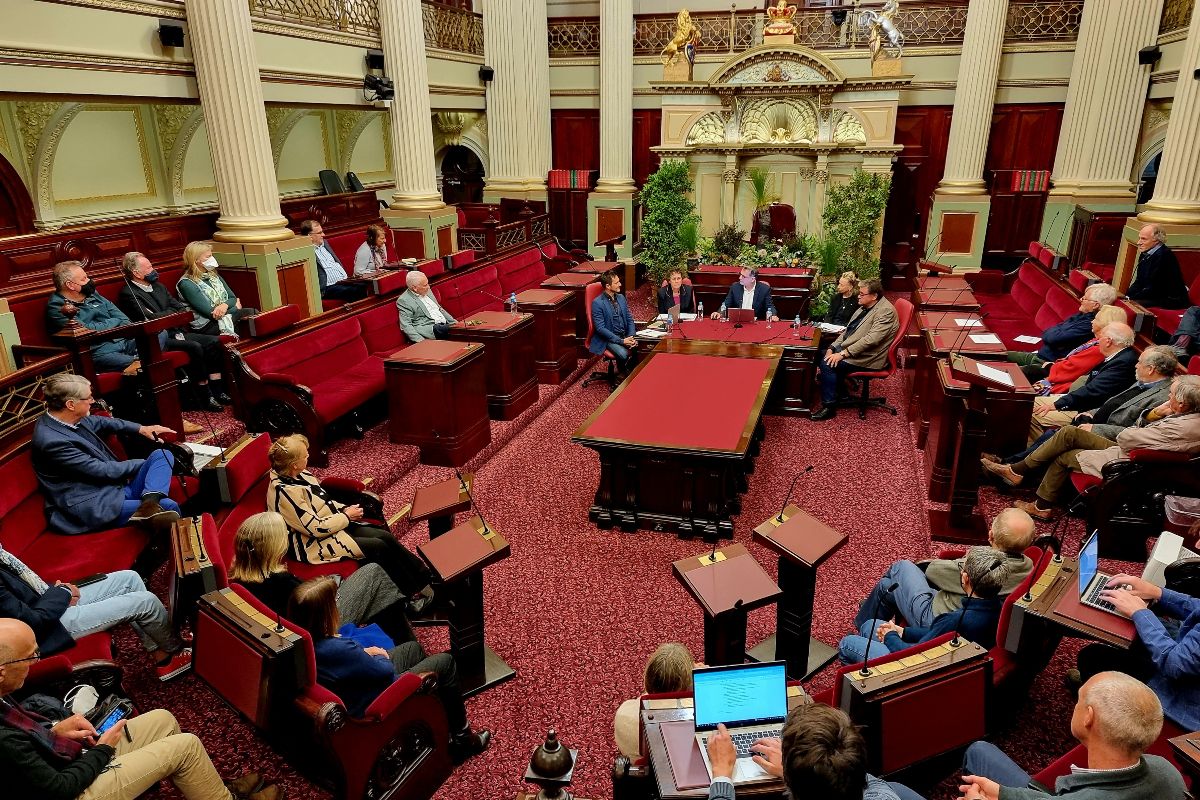
The Society’s 2022 Fellows – Ms Judith Downes (Bank Australia), Ms Fern Hames (Arthur Rylah Institute, DELWP), Mr Damein Bell (Gunditjmara) and Professor Brendan Wintle (The University of Melbourne) – presented the Society’s cross-sector perspective at a public presentation held in the Parliament of Victoria’s Legislative Council chamber on Sunday, 5th June for World Environment Day (available online at https://youtu.be/HmGmdcjgfvA). The Royal Society’s position paper on biodiversity conservation and recovery is scheduled for release in July 2022.
Photos
